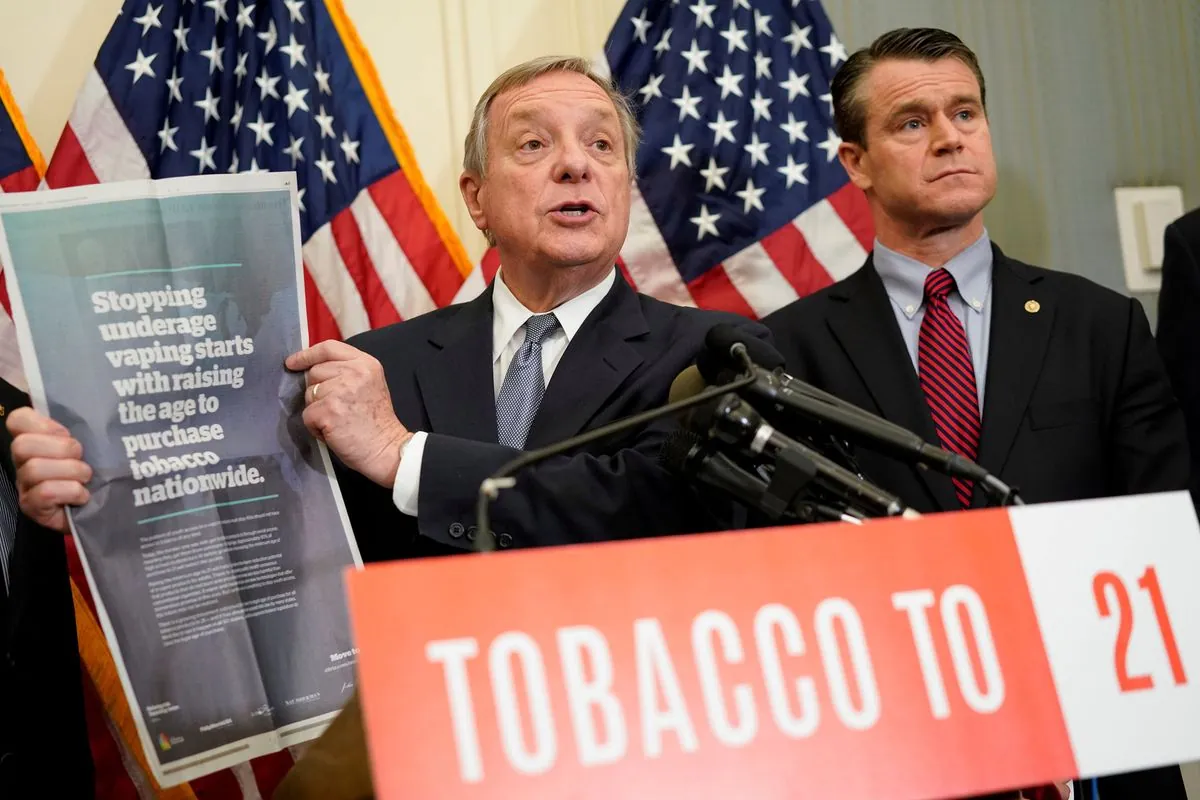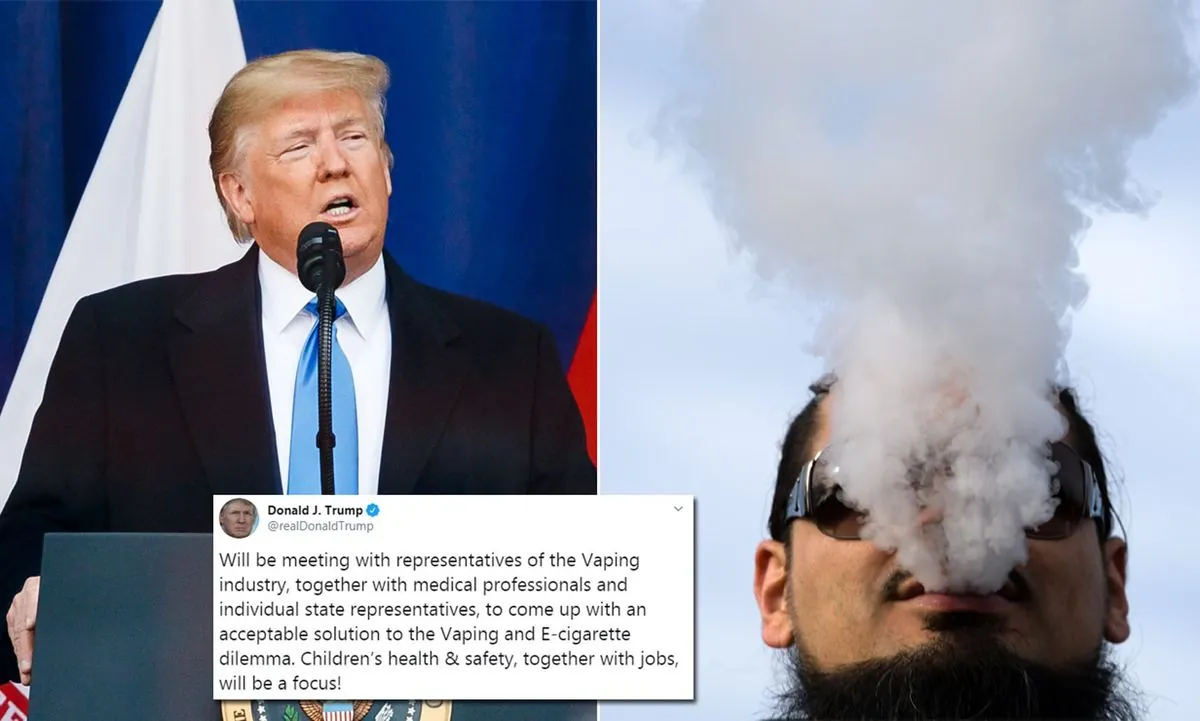Trump's Vaping Stance Shift: Industry Support Amid Health Concerns
Former President Trump pledges support for vaping industry after meeting with lobbyist, contradicting previous policies. Tobacco industry's influence on 2024 campaign raises questions about public health priorities.

Donald Trump has recently expressed strong support for the vaping industry, marking a significant shift from his administration's previous stance. This change comes after a private meeting with a prominent vaping lobbyist, raising questions about the influence of industry interests on political decisions.

The former president's endorsement of vaping contradicts the actions taken during his tenure in office. In 2019, the Trump administration implemented regulations on flavored e-cigarettes, which public health advocates considered a notable achievement. This policy contributed to a substantial decrease in youth vaping over the past five years.
"I saved Flavored Vaping in 2019 and will save Vaping again!"
This statement overlooks the significant crackdown on vaping that occurred under his administration. The FDA gained regulatory authority over e-cigarettes in 2016, and in September 2019, Trump's administration announced plans to regulate flavored vaping products. However, the final policy implemented in early 2020 was a scaled-back version of the original proposal.
The vaping industry, invented in 2003 by Chinese pharmacist Hon Lik, has grown rapidly since its introduction to the US market in 2007. By 2018, the global e-cigarette market was valued at $15.7 billion, with an estimated 41 million users worldwide.
Trump's recent support for vaping aligns with the financial backing he has received from the tobacco industry. The largest corporate donor to the primary pro-Trump super PAC is a subsidiary of Reynolds American, the second-largest tobacco company in the country.
Public health experts warn about the potential hazards of vaping, including exposure to toxic chemicals and metal particles. The FDA has stated that e-cigarettes can cause "irreversible lung damage." In 2019, an outbreak of e-cigarette or vaping product use-associated lung injury (EVALI) occurred in the US, highlighting the need for caution.
Despite these concerns, some countries, like the UK, have embraced e-cigarettes as a smoking cessation tool. However, others, such as Singapore and Thailand, have completely banned them. The World Health Organization has called for stricter regulation of e-cigarettes, as their long-term health effects are still not fully understood.
The vaping issue has become unexpectedly salient in the 2024 campaign, intersecting with questions of race, financial pressure, and government regulation. As the debate continues, it remains crucial to balance public health concerns with industry interests and individual freedoms.


































